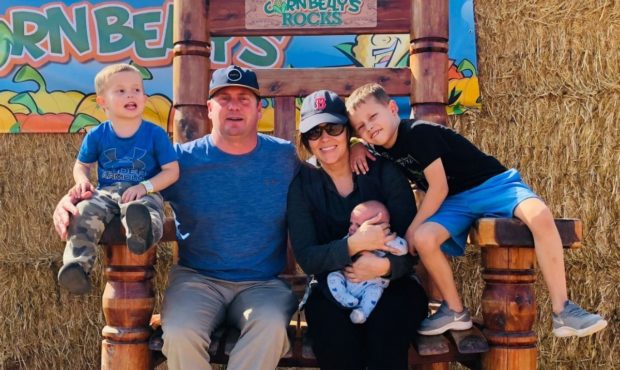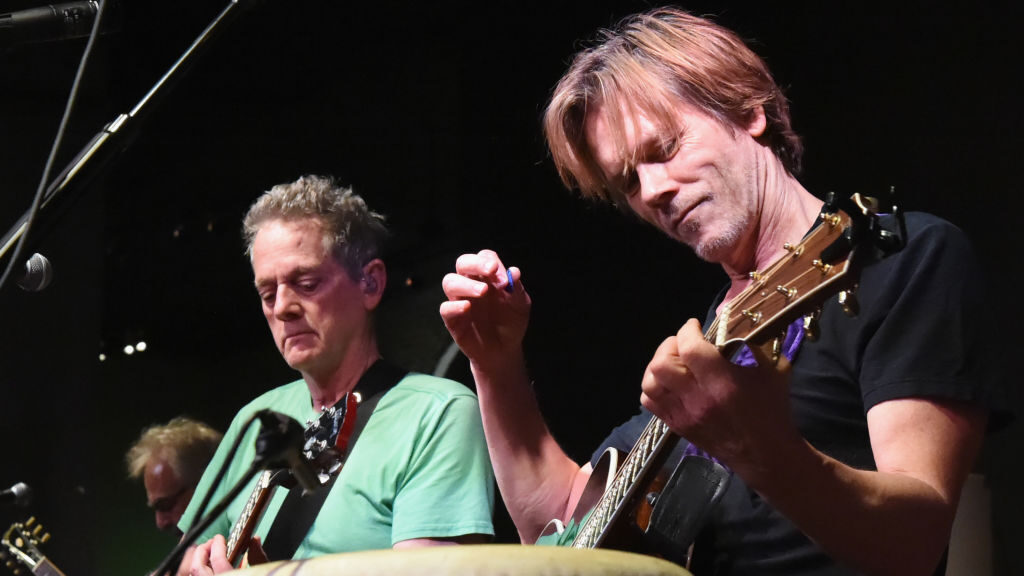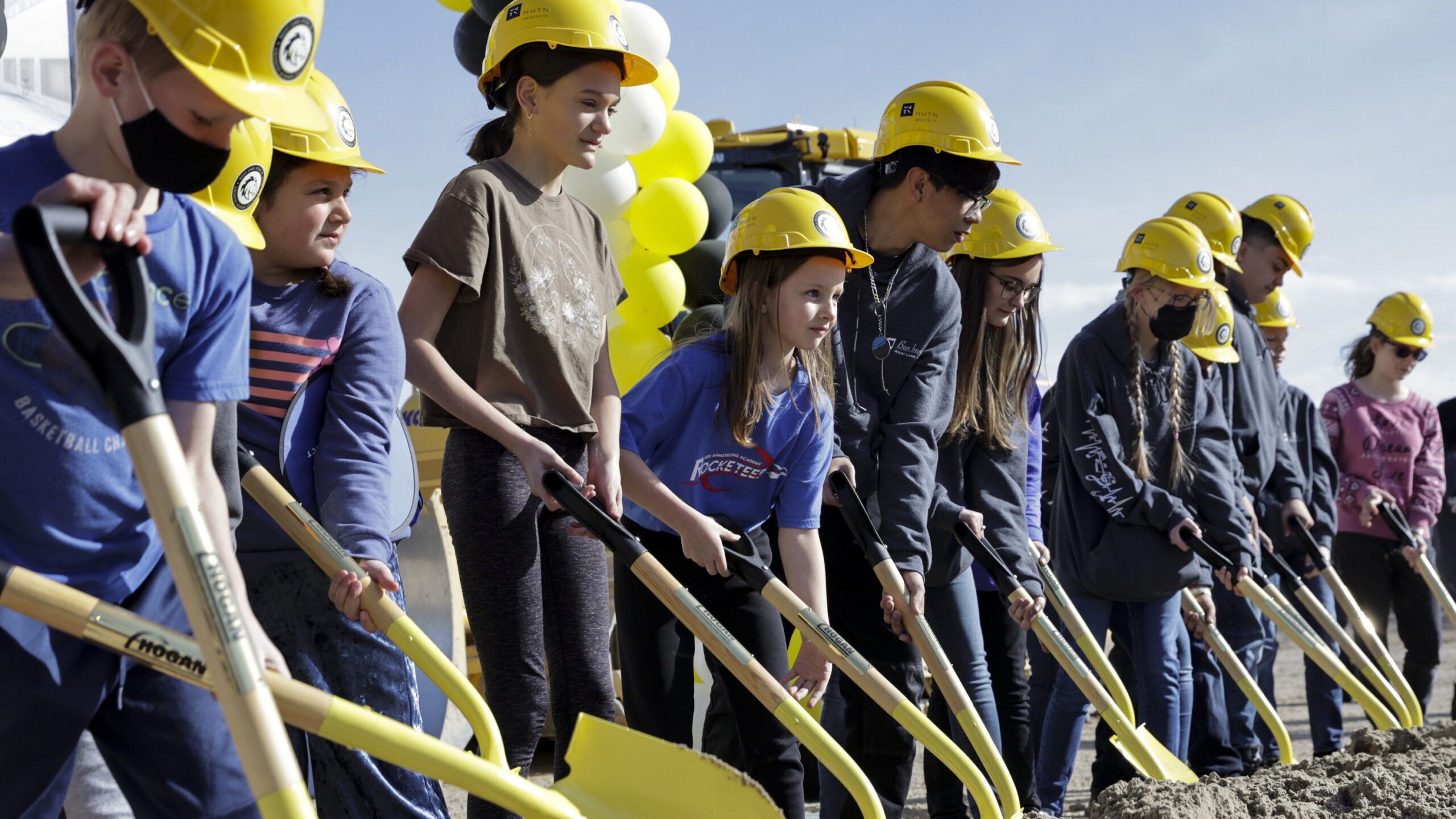Utah woman speaks about life after losing her husband to addiction
Aug 7, 2019, 11:37 AM

Photo: GoFundMe/Smith Family Support Fund
A simple shoulder surgery left a Utah man addicted to opioids — an addiction would eventually take his life. Now, his wife is picking up the pieces of a shattered family.
On the latest episode of ‘Project Recovery,’ Emily Smith describes her story, from falling in love to moving forward after tragedy.
The start of Emily and Brian’s love
Emily first met Brian Smith through mutual friends while attending the University of Utah.
They eventually started dating, but due to Brian attending Southern Utah University in Cedar City at the time, their relationship was predominantly long-distance. Often, Brian traveled to Salt Lake City to visit his friends and Emily.
For Emily, the attractive qualities she saw in Brian outweighed the distance.
“This guy’s such a super nice, super sweet [guy],” she remembered. “He’s handsome, he’s just an all-around good guy.”
Brian impressed Emily with his ability to teach and coach.
“He was just a really good teacher or coach. We would go golfing together…but he would make it fun because he would say, ‘Stand this way, put your head this way, grip it this way,’ and all of a sudden I’m playing the game and he’s making it fun,” Emily explained.
That same level of compassion translated into Brian’s career in Criminal Justice.
“He was good at being the professional, where they taught him you can’t be their buddies when they’re in jail but you have to treat them with respect,” she added.
A year after dating long-distance, Brian decided to move up north. After another year of dating, the two decided to get married. Later, their family expanded to include three young boys.
How a shoulder surgery started a downward spiral
During the early years of their relationship, Emily never saw any signs of drug abuse or addiction. That all changed after Brian had surgery on his shoulder.
“I don’t know his story, so I don’t know when it started. I know there was a shoulder surgery, though,” Emily described. “His recovery was rough.”
Brian received a prescription for opioids to help cope with the pain, but after his prescription ran out, the first signs of addiction began to appear.
“He refilled a prescription and when that was through, there were withdrawal symptoms and they were scary,” Emily said. “You could tell, he just felt really bad… It was like a depression, it was very solemn and grim.”
Ultimately, Brian hid his addiction from Emily, so she wasn’t able to completely understand or help him with what he was going through.
Brian’s addiction began to cloud his judgment; his employer, the Utah County Sheriff’s Office, gave him the option to resign after accusing him of stealing opioids, but Emily said she knew something was very wrong a couple of days earlier.
“Right before we got the call, he was very altered, so I knew,” she explained.
Emily kicked Brian out of their home over the constant drug abuse and loss of his job, a decision that forced him to consider rehabilitation and to sign up for a treatment program.
A turn for the worse
After realizing that his addiction consumed his life, Brian started looking into rehab facilities. With Emily’s help, he signed up for a three-month program.
“Once he got into treatment… I could see so much… improvement in the way he talked about himself, how we talked to each other,” Emily recalled. “Just because he was getting help and he was learning skills that he needed to learn and it was helping.”
The signs of recovery were apparent almost immediately. Emily began to see positive changes in Brian, even after just the first month.
“He really liked his therapist, he really liked the people in the program with him and he was having a good experience,” she explained.
Brian even began to talk more openly with Emily about his addiction and what he was feeling.
“He could just communicate his feelings better, which can be so hard to do with that label on emotion and say this is what I’m feeling and this is why,” she said. “He just had more hope for the future.”
Brian began to call Emily every morning on his way to treatment to talk about life and their future but on July 9, 2019, Emily never received a call.
She called Brian’s therapist that morning to see if he had made it into therapy but his therapist had yet to see him that day. The therapist offered to perform a wellness check and go to where he was staying to make sure everything was okay.
At his parents’ home, the therapist found Brian, dead.
Putting the pieces back together
Emily is now focused on raising her three boys and trying to find a routine for their family after such a horrible tragedy.
“You don’t feel like getting out of bed, but I have three kids, so it’s not an option to sleep all day, which is good because that’s what I would probably do,” Emily said.
The small things like playing during the day, reading stories at night, and praying before bedtime have become essential for Emily.
“Those things feel so amazingly normal to me, it’s so healing,” she said. “You can almost feel normal again when you have to do those things.”
Countless people have reached out in support of Emily’s family and have helped in many ways including making food, writing notes, and even donating money.
Emily is also emphasizing talking about Brian with their boys, even though they are so young.
“We still have all of the videos with daddy we can watch. They’re so young, they’re 7, three, and 10-months but we talk about him because it actually feels wrong not too,” Emily concluded.
To hear more from Casey Scott and Dr. Matt Woolley, you can listen below or subscribe to the ‘Project Recovery’ podcast on Apple Podcasts or the KSL Newsradio app.













